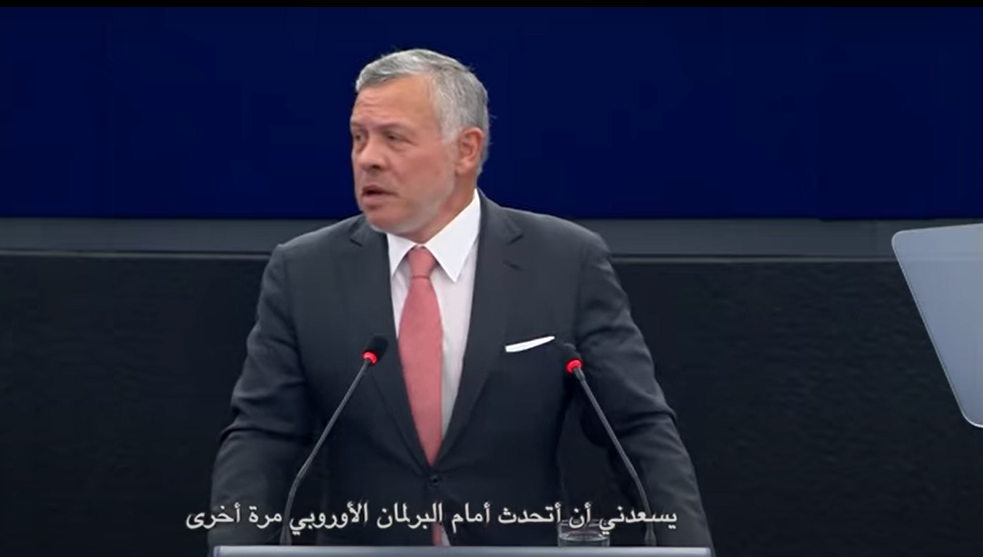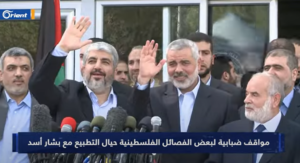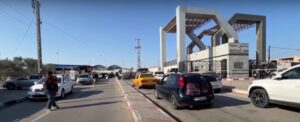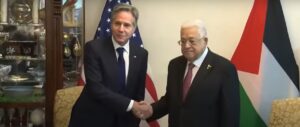The atmosphere in the Jordanian kingdom is very tense following the events of the past week in which there were violent demonstrations that began in southern Jordan and spread to the capital city of Amman as the demonstrators call for the overthrow of the regime.
The Jordanian army was deployed on the orders of King Abdullah in sensitive areas to prevent the spread of the demonstrations, the Jordanian security forces carried out preventive arrests of activists who they say are trying to inflame the demonstrations. Among others, Majed Alsharari, the former mayor of Maan, and 3 other senior activists of the “Muslim Brotherhood” movement were arrested.
The Jordanian security officials estimate that the
“Muslim Brotherhood” movement is pushing
for a civil unrest in the area, which includes blocking main roads, trade strikes and strikes of the trucks, taxis and buses.
The “Islamic Action Front” affiliated with the
“Muslim Brotherhood” publishe a manifesto against the suppression of the demonstrations and demanded that the Jordanian government allow freedom of expression.
King Abdullah is under a lot of pressure, in the last three years Jordan has gone through a difficult economic situation: the corona crisis, unemployment, the increase in food and fuel prices and the plight of the refugees staying in Jordan.
The unrest in Jordanian society is not only of the Palestinians but also of the Bedouin tribes, for example the Bani Hassan and Bani Hamida tribes, they are openly against the royal house and also against the government which they accuse of mismanaging the economic crisis, they demand the establishment of a government national rescue.
King Abdullah does not rule out the possibility of declaring a state of emergency if the demonstrations spread, the deployment of the Jordanian army in southern Jordan led to the reduction of the demonstrations, but in the city of Karak at the beginning of the week there was a general strike in protest of the increase in fuel prices, the Jordanian street the pushes the government to surrender to his demands.
Another phenomenon that worries King Abdullah is the reestablishment of armed jihadist groups in southern Jordan.
One of these groups is the one that last week shot and killed the deputy director of the Maan Police, Dr. Abdelrazak Al-Dalabich.
Jordanian security officials claim that these groups are based on drug dealers and jihadist terrorists who were in a Jordanian prison and were released in recent months.
The Jordanian security forces raided at the beginning of the week on the members of one jihadist family in the Husseiniyah area of the Ma’an district, they killed one of the family members who is suspected of the murder of Colonel Abd al-Razzaq Al-Dalabich, in the raid 3 Jordanian policemen were killed and another 5 were injured.
The Jordanian security forces arrested 8 suspects and seized a large amount of weapons and ammunition, they put a complete blackout on the investigation.
King Abdullah fears that the armed groups are being operated by outside parties and so is the “Muslim Brotherhood” movement that works against the Jordanian regime in coordination with Iran.
Jordan expects the Biden administration to come to its aid financially and also some of the Gulf countries, none of which are interested in the collapse of Jordan and the strengthening of Islamic forces in it.
King Abdullah made a mistake when he appointed Besher Al-Hasawna to the position of Prime Minister, he is not in control of the difficult economic situation and the government is almost non-functional in the economic field.
King Abdullah’s challenge now is to calm the situation, In Jordan, it is estimated that he will soon dissolve the government and also lower fuel prices in an attempt to prevent the phenomenon of civil unrest that threatens his rule.




